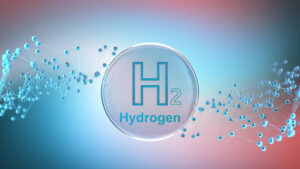Investors lurk as Poseidon Marine H2 targets aquatic history

Pic: Getty
The company is seeking to raise $410,000 to fund the feasibility study – which targets christening a hydrogen-powered boat on the open ocean by Q3, 2023.
Poseidon’s team of engineers plans to create one of the world’s first hydrogen-powered boats in the next 18 months, to meet the rapidly growing demand for tech that’ll decarbonise the maritime industry.
Poseidon Marine H2 Director and Principal Engineer Peter Mastalir said the company believes it will achieve this by focusing on building a better boat that has:
- An equivalent operational range
- Requires much less maintenance, and;
- Is cheaper to run than traditional fuel sources (like diesel)
The Poseidon Marin H2 plan is to retrofit existing technologies as much as possible, which is why they’re looking to use an existing hull design with a unique upper deck and internal layout.
“This approach allows for a new top to be seamlessly installed onto a repurposed hull powered by green hydrogen, meaning uptake will be quick as the assets already exist,” Mastalir said.
Target market: new motor yachts
The company says they will be targeting the new motor yacht market, which has a projected market size of well beyond US$11 billion, with Europe making up 35% of the sector (US$3.9b).
“We see a substantial market opportunity in Europe,” Mastalir explained.
“By 2030, the new motor yacht industry in Europe will be worth US$5b, meaning there will be a large technology vacuum across the entire sector.”
Their technology partner, Dynamic Efficiency, has direct connections with a marine engineering company at the Gold Coast City Marina and an extensive list of relationships with major industry players and universities, which will prove critical to executing the project.
“We will leverage our existing relationship with large homegrown manufacturers to form licensing agreements which will help them offer hydrogen boats and create an internationally competitive industry within Australia,” Mastalir added.
It will also ensure its technology has diesel applications to provide the market with a transitional option – and will leverage current fuel sources while future-proofing the boat for conversion at a later date to hydrogen – when the fuelling infrastructure is adequate.
This article was developed in collaboration with Poseidon Marine H2, a Stockhead advertiser at the time of publishing.
This article does not constitute financial product advice. You should consider obtaining independent advice before making any financial decisions.
Related Topics

UNLOCK INSIGHTS
Discover the untold stories of emerging ASX stocks.
Daily news and expert analysis, it's free to subscribe.
By proceeding, you confirm you understand that we handle personal information in accordance with our Privacy Policy.








